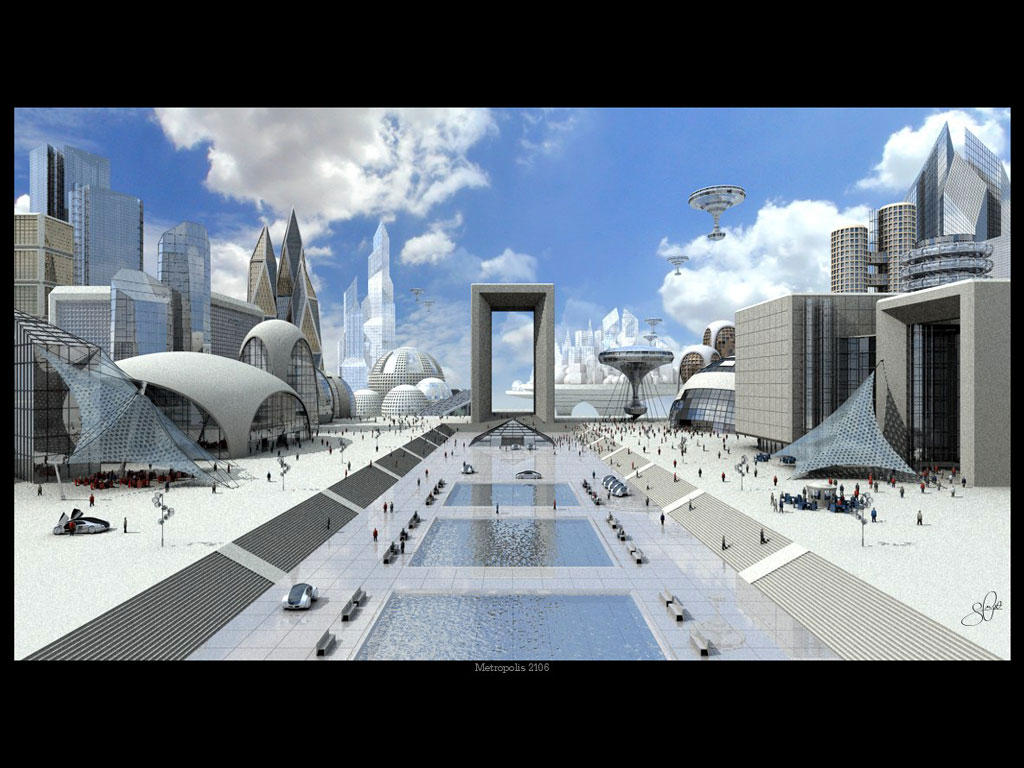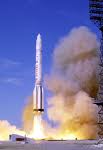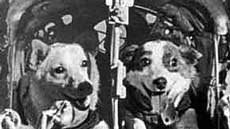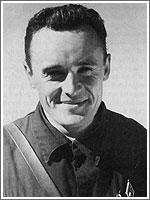
- •In the year of 2008 Oxford had the largest number of (5) _________________ (science) research works in a total of 48 fields.
- •In the city of Kuibyshev
- •I order:
- •Valentina Tereshkova is the first woman to fly in space in 1963.
- •10 Facts about the United States:
- •Informal letters are characterized by:
ORDER
High
School Committee of USSR
Moscow
№ 143/M
17
JULY 1942
To
open the Aviation Institute
To
open the Aviation Institute in the city of Kuibyshev with 1000
students.
To
begin the work of Kuibyshev Institute of Aviation from 1 October
1942.
To
train in Kuibyshev Institute of Aviation technology engineers
specializing in:
Aircraft
Construction
Aircraft
Engine Construction
To
take 150 first-year students for each specialization in 1942.
To
appoint Soifer A.M. as the director of the Institute from 1
September 1942.In the city of Kuibyshev
I order:
b) Compare the Institute of 1942 with the University of 2010.
|
In 1942 the name was Kuybyshev Institute of Aviation |
Now the name is Samara State Aerospace University |
|
|
|
|
|
|
|
|
|
|
|
|
|
|
|

1. Work in groups. Make a presentation of SSAU in the year of 2050. You may speak about the following:
t
 he
name
he
name
faculties, specialization
number of teachers, students
classrooms, laboratories
facilities
extra-curricular activities (students theatre, etc…)
location
whatever idea you have
![]()
1. Write a paragraph (100-150 words) saying why you have chosen SSAU. Follow the structure:
a) Write a topic sentence.
I have chosen Samara State Aerospace University for several reasons.
b) Give three reasons. Make use of the linking devices for listing:
Firstly,
Besides,
Furthermore,
Then,
The second reason is…
Finally,
c) To each reason give a suitable example. Make use of the linking devices for examplification:
For example,
For instance,
To prove,
d) Finish up your paragraph with a conclusion. Make use of the linking devices for conclusion.
To sum it up,
In conclusion,
To crown it up,

![]()
1. Space Quiz. How much do you know about space exploration? Choose the correct variant.
1 .
Who was the first man to go to the outer space?
.
Who was the first man to go to the outer space?
|
A. S.P. Korolev |
C. Yury Gagarin |
|
B. Neil Armstrong |
D. Konstantin Tsiolkovsky |
2. Which country was the first to land on the Moon?
|
A.France |
C.Russia |
|
B.TheUSA |
D. Australia |
3. Who was S.P. Korolyov?
|
A. a cosmonaut |
C. a designer |
|
B. a director of SSAU |
D. a pilot |

4.When was the first artificial Earth satellite launched?
|
A.In 1920s |
C.In 1980s |
|
B. In1950s |
D.In 2000 |
5. Who was the first woman cosmonaut?
|
A.Valentina Tereshkova |
C.Svetlana Savitskaya |
|
B.IvinsMarshaSue |
D. Yamazaki Naoko |
6 .
Which of these animals were never is space?
.
Which of these animals were never is space?
|
A.Dogs |
C.Rabbits |
|
B.Monkeys |
D. Turtles |
7. Which of these places doesn’t hold an airshow?
|
A.Baikonur |
C.Zhukovsky |
|
B.LeBourget |
D. Farnborough |
![]()
1. Practise reading the following words.
|
launch |
lɔ:ntʃ |
|
vehicle |
‘vıƏkl |
|
enthusiast |
ın’Ɵju:zıæst |
|
jet propulsion |
ʤet prƏ’pΛlʃn |
|
weapon |
‘wepƏn |
|
cruise |
kru:z |
|
missile |
mı’saıl |
|
artificial |
.a:tı’fıʃl |
|
satellite |
‘sætƏlaıt |
|
authorities |
Ə’Ɵɔ:rıtız |
2. Match the terms with their Russian equivalents. Make use of a dictionary if necessary.
|
1 |
a) крылатая ракета |
|
2. rocket weapon |
b) планер |
|
3. glider |
c) ракета-носитель |
|
4. jet propulsion |
d) освоение космоса |
|
5. cruise missile |
e) совершающий космические полеты |
|
6. manned spacecraft |
f) искусственный спутник |
|
7. space booster |
g) ракетное оружие |
|
8. space-faring |
h) межпланетная зондирующая ракета |
|
9. artificial satellite |
i) реактивное движение |
|
10. interplanetary probe |
j) пилотируемый космический аппарат |
3. a) You are going to read the text about S.P. Korolev. Brainstorm what information it will contain.
I think the text can be about his family… _____________________________
___________________________________________________________________________________________________________________________________
b) Read the text to see if your guesses are correct.
 Sergei
Pavlovich Korolev
(1907-1966) is the founder of the Soviet space program. Korolev, like
many of his colleagues, went through Stalin's prisons and later
participated in the search for rocket technology in occupied Germany.
His energy, intelligence, belief in the prospects of space flight,
managerial abilities and skills in decision-making made him the head
of the first Soviet rocket development center. He deserves the most
credits for turning rocket weapons into an instrument of space
exploration and making the Soviet Union the world's first
space-faring nation.
Sergei
Pavlovich Korolev
(1907-1966) is the founder of the Soviet space program. Korolev, like
many of his colleagues, went through Stalin's prisons and later
participated in the search for rocket technology in occupied Germany.
His energy, intelligence, belief in the prospects of space flight,
managerial abilities and skills in decision-making made him the head
of the first Soviet rocket development center. He deserves the most
credits for turning rocket weapons into an instrument of space
exploration and making the Soviet Union the world's first
space-faring nation.
 Sergei Korolev was born on
January 12, 1907, in the city of Zhitomir in present day Ukraine, in
the family of a Russian language teacher.
Sergei Korolev was born on
January 12, 1907, in the city of Zhitomir in present day Ukraine, in
the family of a Russian language teacher.
In 1922 Sergei Korolev passed qualifying exams at the Odessa professional construction school. At the time, Sergei was already interested in aviation. In 1924, Korolev was transfered to the Kiev Polytechnic Institute, where he joined a group of glider enthusiasts. Two years later Korolev moved to Moscow's Bauman High Technical School, the best engineering college in Russia.
Korolev graduated from the university in 1929 and in 1931 he joined the Central Aero and Hydrodynamics Institute. In July 1932, Korolev was appointed chief of Jet Propulsion Research Group. In 1933, the group was reorganized into the Jet Propulsion Research Institute, where Korolev worked as Deputy Chief of the institute. The development of cruise missiles and of a manned rocket-powered glider was led by Korolev.
At the peak of his career, Korolev led the development of the world's first ballistic missile, which are known today as R-7. They became a base for a long-lasting family of space boosters, carrying Russian cosmonauts into orbit for decades in the future.
In the following years, several generations of ballistic missiles, artificial science, military and communications satellites, interplanetary probes and manned space vehicles were being developed. The Soyuz spacecraft which turned 40 years in operation in 2006, was created and launched under his guidance. Korolev died at the height of his career on January 14, 1966.
Due to secret nature of the Soviet space industry, Korolev's contribution to the space program was publically recognized by the Soviet authorities only after his death.
4. Say whether these sentences are true or false.


a) Korolev headed the first German rocket development centre.
b) Korolev joined a group of glider enthusiasts in 1922.
c) Korolev graduated from SSAU in 1924.
d) Cruise missiles and manned rocket-powered gliders were developed under Korolev’s guidance.
e) Today’s space boosters are based on R-7.
f) Korolev died when he was 80 years old.
g) People didn’t know about Korolev’s contribution to the Soviet space science when he was alive.
5. Match the words with their definitions. State their part of speech.
|
1 |
a) a group of people with official power |
|
2) to recognize |
b) man-made |
|
3) authorities |
c) the second leader of the company |
|
4) to appoint |
d) help and advice |
|
5) artificial |
e) to know |
|
6) guidance |
f) continuing for a long period of time |
|
7) long-lasting |
g) to choose someone for a job |
6. a) Match the following words to make noun-noun collocations.
|
1) rocket |
a) enthusiast |
|
2) space |
b) missile |
|
3) glider |
c) weapon |
|
4) engineering |
d) exploration |
|
5) cruise |
e) college |
b) Give the Russian equivalents of the phrases above.
NB! When you see the noun-noun collocations, you should know that the main noun is the last one, and all the rest are its attributes.
* jet propulsion research group
group – группа
research group – группа для исследования
jet propulsion research group – группа для исследования реактивного движения
7. a)Read the text and substitute the underlined words and phrases with their synonyms from the box below.



 .
space exploration
.
space exploration )
Deputy Chief (n)
)
Deputy Chief (n)